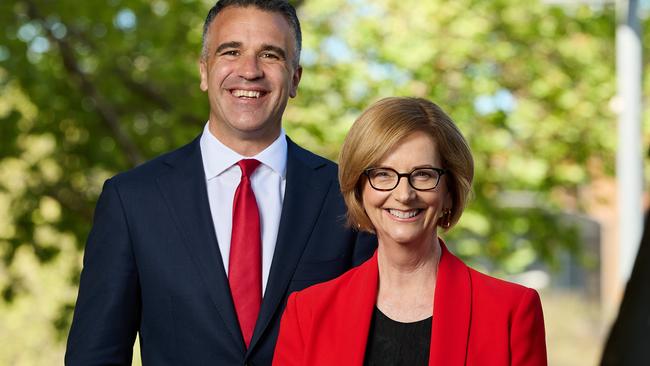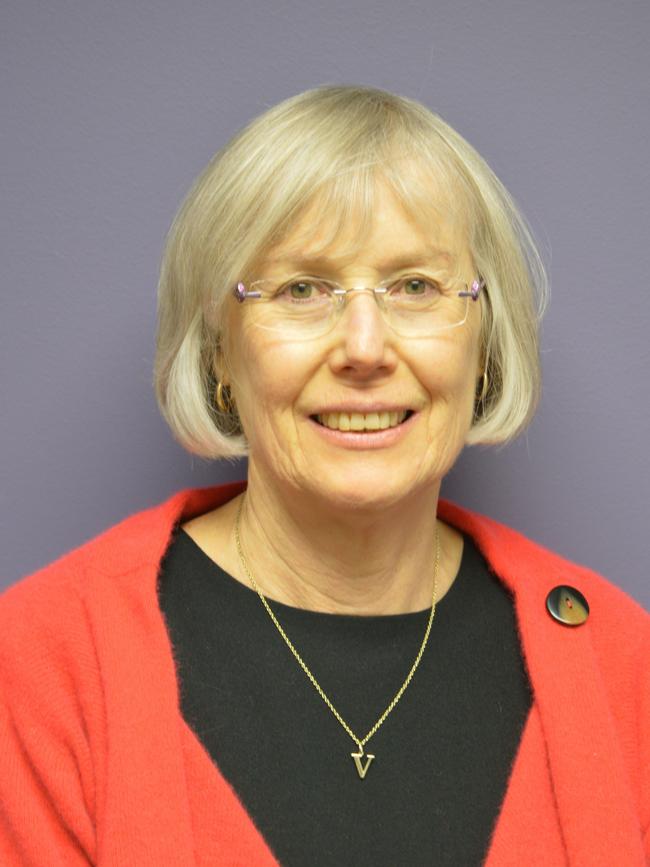Early Childhood Education and Care Royal Commission told there should be more checks on children under five years of age
Early childhood royal commissioner Julia Gillard has been told nurses need to start checking on babies and toddlers more often to measure their development. Do you agree?
Education
Don't miss out on the headlines from Education. Followed categories will be added to My News.
Serious gaps in data are hindering attempts to address problems with early childhood development in South Australia, an inquiry has heard.
Experts have told the first public hearing of the Early Childhood Education and Care Royal Commission, held in Adelaide on Wednesday, that data needed to be collected from birth to when children started school.
Child Development Council chairwoman Associate Professor Victoria Whitington told royal commissioner and former PM Julia Gillard decisions about early childhood intervention instead were being based on “what we think should happen”.
“We have people making decisions without the actual evidence,” she said.
“There are gaps in the data we are really concerned about. For children under five years old, we basically don’t have it.
“These gaps inhibit South Australia’s decision makers from making informed decisions to improve the outcomes of children and young people.”

Professor Whitington, a highly-respected early childhood educationist and UniSA researcher, said while some data was being collected by government agencies, it was “kept either in computers or locked in filing cabinets”.
“It often is inaccessible or not of a standard that we can use,” she said. “We need real time data collected by departments and other groups who have the capacity to do something about it.
“I think we need to focus very much on children under five and collect data which will help us make decisions from a whole of government approach.”
Professor Whitington said Child and Family Health Service (CAFS) nurses should start doing annual checks of infants and toddlers.
“CAFS nurses obviously collect data but it is not in a form that can be analysed and brought together in one place.”
Professor Whitington said the role of CAFS nurses should be extended.

“We have checks in the first weeks of life but we don’t have one at one year or two or three,” she said.
“We need these so over time we can see what is happening with children.”
Professor Whitington said the data would help measure early childhood development, particularly the brain which research showed developed the most within 1000 days of birth.
“The first time data is being collected is when children start school and forms are filled out by teachers,” she said.
Professor Whitington said it was used for the Australian Early Development Census (AEDC), which measured physical health and wellbeing, social competence, emotional maturity, language and cognitive skills, communication skills and general knowledge.
“The AEDC data is useful but the current lack of developmental milestone data for children under five years remains of grave concern,” she said. “It means that South Australia has no information regarding how many children in this age range are on track.”
Royal commission public hearings continue on Friday.
EDITORIAL: POWER OF LEARNING
The decision by Premier Peter Malinauskas to hold a royal commission into early childhood development already has produced rich dividends.
During its first public hearing, several national experts have raised serious concerns about the critical lack of data being collected on children under five.
They have worryingly exposed how decisions about our youngest and most vulnerable citizens are not being based on research or evidence. Their evidence before royal commissioner and former Labor prime minister Julia Gillard has highlighted why it is vital to have a forthright discussion about early childhood education before three-year-olds are put into the state’s preschools.
It is a complex area, with opinions divided about how best to raise children before they start primary school.
Already, after only one day, much detail has emerged about gaps in the knowledge needed to make informed decisions — and why more data is essential.
If Ms Gillard’s inquiry continues to unearth such problems, then it will be worth all the resources that are committed to it.



